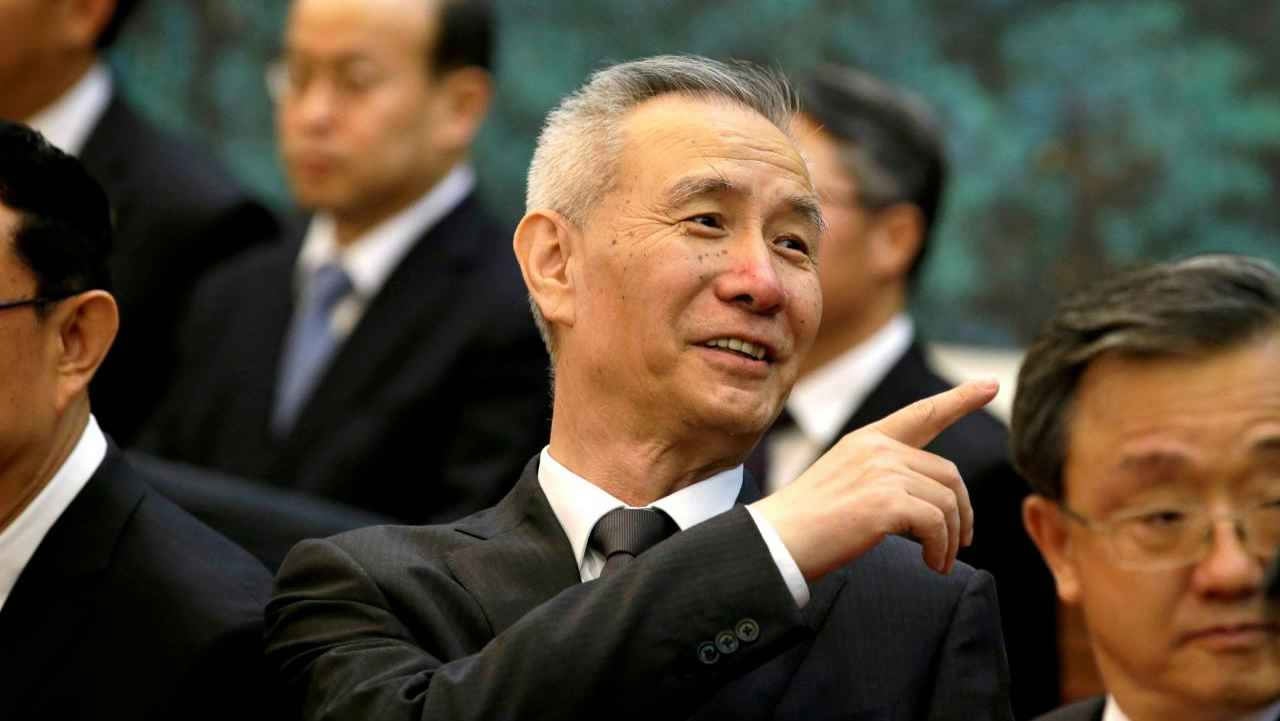
Business
11:09, 19-Mar-2018
Economic reform architect Liu He approved as Chinese vice premier
CGTN

Liu He, a chief economic adviser and one of the masterminds behind China's supply side structural reforms, has been approved as a vice premier by the country's legislative body, in a role that puts him at the forefront of a continued overhaul of policies as China further opens up its economy and tackles the threats of systemic risks.
The technocrat and economist will be serving along with Han Zheng, former mayor of Shanghai, Sun Chunlan, former minister of the United Front Work Department, and Hu Chunhua, former provincial governor of Guangdong – all of whom were nominated by Premier Li Keqiang and approved by the National People's Congress on Monday.
Regarded as a key figure in China’s deleveraging drive and a behind-the-scenes architect in economic reform, the 66 year-old Harvard graduate has spent most of his career researching and advising on the country's macro-economic and industrial policies.
Liu played an important, albeit somewhat discreet role in drafting policies including the central-level Five-Year Plans, and set the country's economic priorities through his posts at the National Development and Reform Commission and the Central Leading Group for Financial and Economic Affairs.
Many had been anticipating a top-level role for Liu during this year's political season, after he was elected as a member of the 25-strong Political Bureau of the Chinese Communist Party (CPC) Central Committee during the 19th CPC National Congress in October. Before that, Liu was not frequently in the public eye.
Speaking in Davos in January on China’s priorities for the next three years, Liu reiterated China’s unswerving commitment to financial inclusion and market-oriented policies, further opening the country's gates with greater reforms amid a shift towards quality-driven growth.
As the only policy maker who was not a state leader to speak at the forum, Liu echoed the remarks made by Chinese President Xi Jinping’s speech at Davos last year, which was in favor of globalization and cooperation, cautioning over protectionism.
In February, the economic adviser led a delegation to the US to discuss healthy trade relations, meeting with US Treasury Secretary Steven Mnuchin, and former White House National Economic Council director Gary Cohn, as trade tensions rose.
Liu entered Beijing-based Renmin University of China in the late 1970s, earning a degree in industrial economy. He studied business at Seton Hall University in South Orange, New Jersey, and earned a master's degree in public administration at Harvard's Kennedy School of Government in 1995.
The seasoned policy maker is expected to control and reallocate credit, further open up financial markets, and ramp up protection in intellectual property rights with his deep understanding of economic issues.

SITEMAP
Copyright © 2018 CGTN. Beijing ICP prepared NO.16065310-3
Copyright © 2018 CGTN. Beijing ICP prepared NO.16065310-3